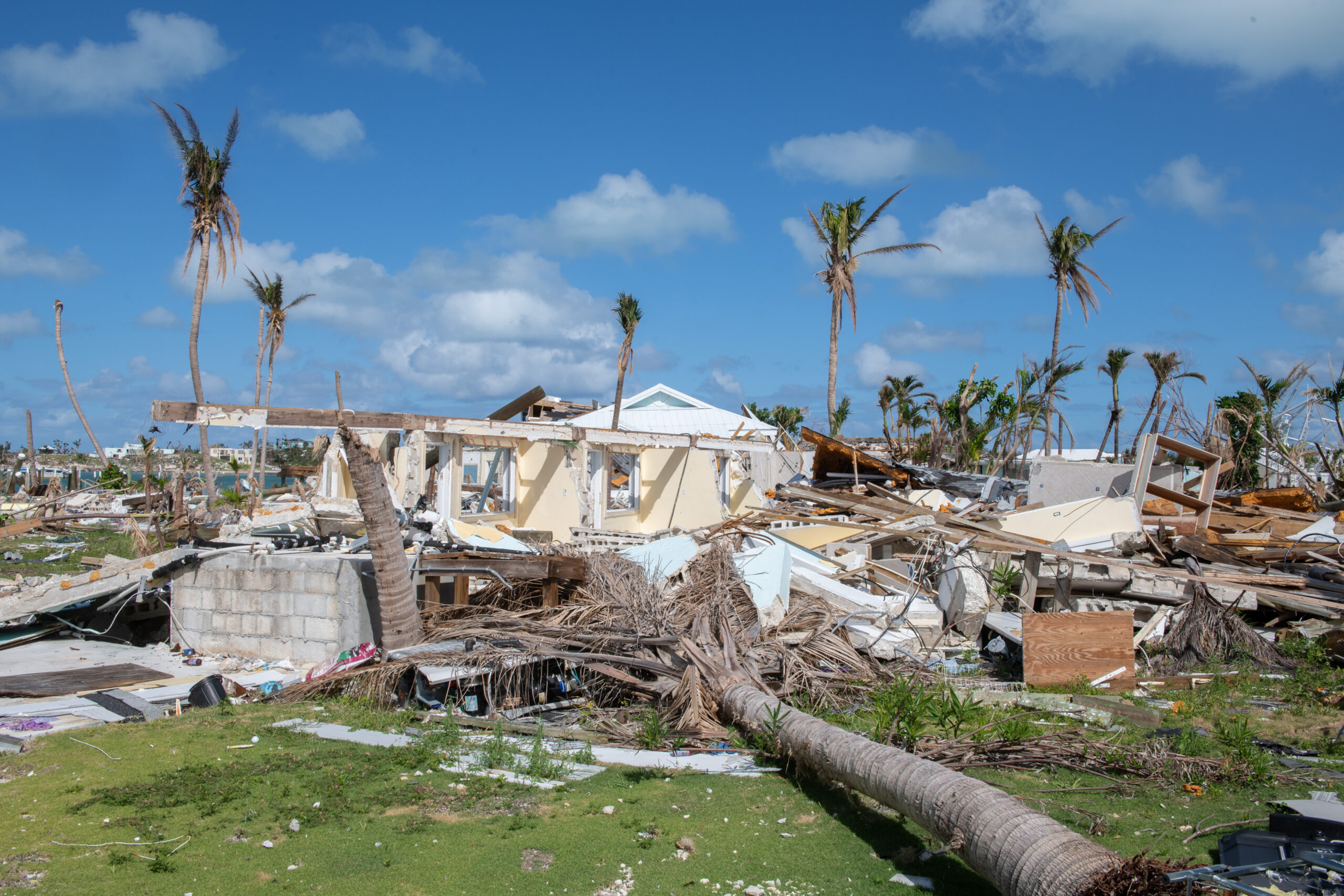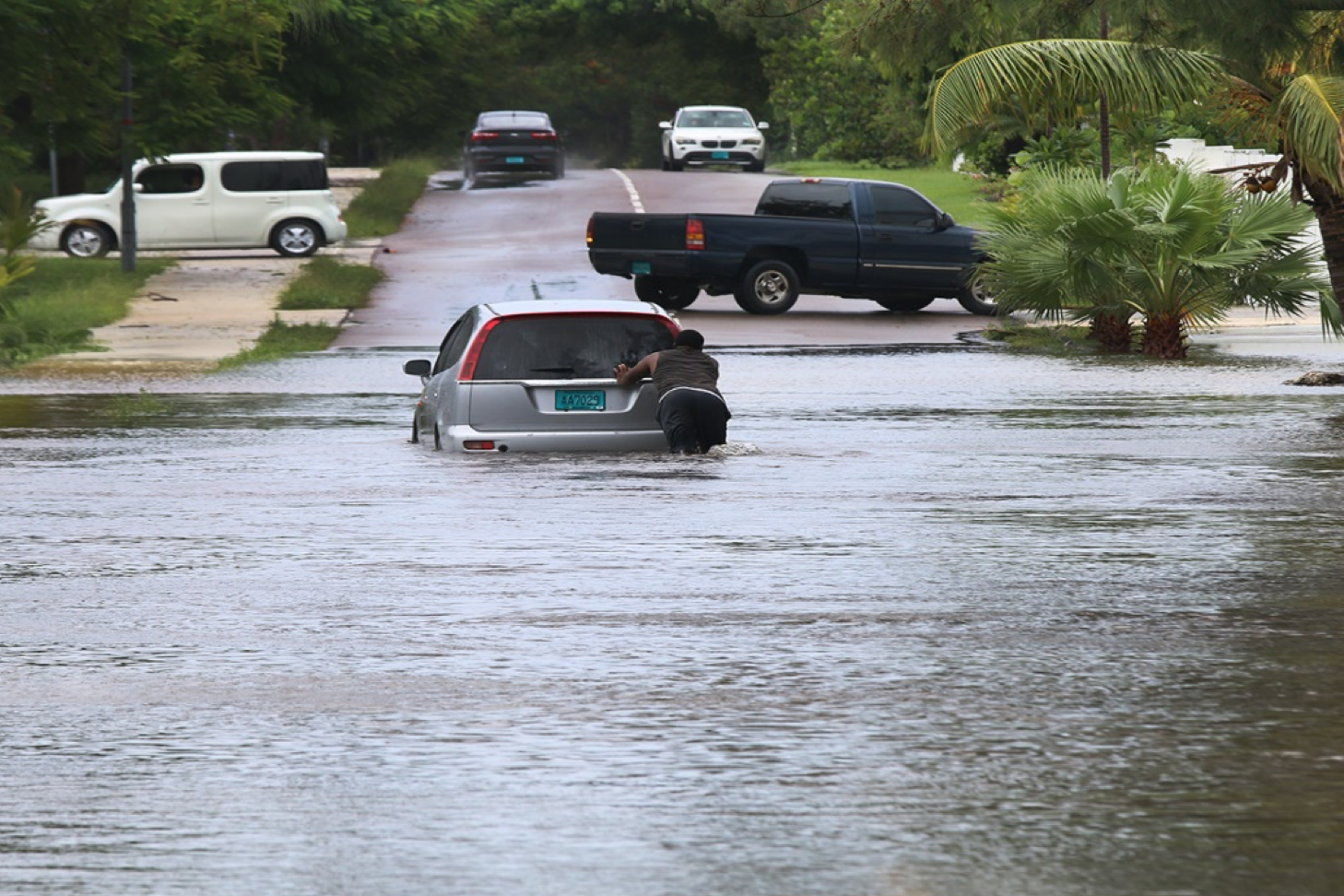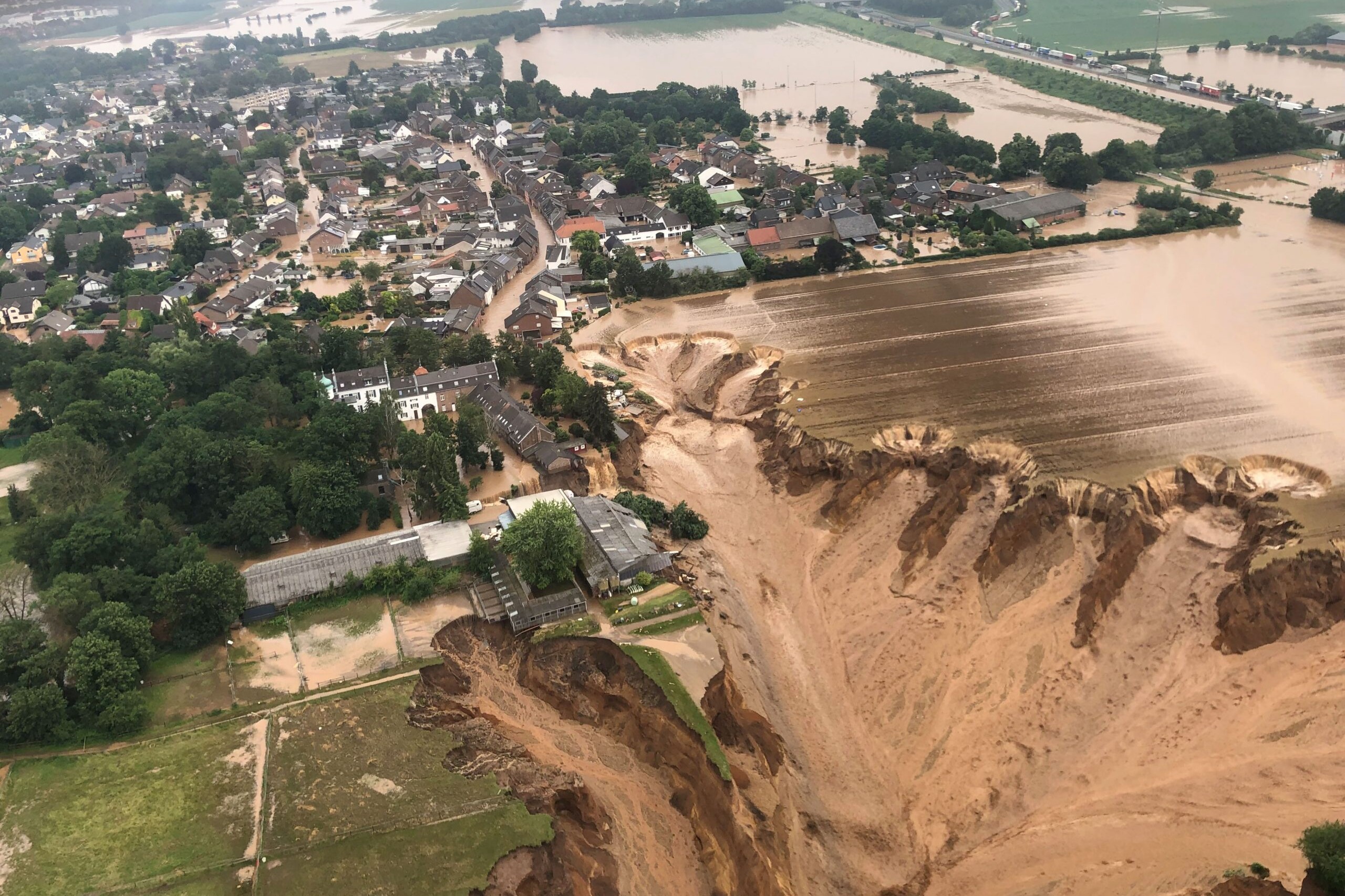INTERVIEW
“We learned the importance of rapid radio response”: EBC on covering the floods
14th June 2024
An unprecedented weather event in the southern region of Brazil, Rio Grande do Sul, tested EBC’s ability to respond and provide critical, life-saving information.

In early May, Brazil experienced what has been perceived as the worst floods on record, with more than 170 deaths, hundreds more injured, and over 400,000 people displaced. Four ‘tent cities’ are being established to accommodate those who have been left without any accommodation.
The weather event took place in Rio Grande do Sul, the country’s southernmost state.
During moments of environmental disasters, public service media has a responsibility to provide timely and accurate information to audiences. In many countries, such as New Zealand or Japan, public service media has a role as a key lifeline service, able to transmit the critical lifesaving messages to those who need to receive them.
How did Empresa Brasil de Comunicaçao (EBC), the umbrella organisation which consists of Brazil’s national news agency, radio network and television station, fulfil this responsibility in its response?
PMA’s Editorial Manager, Harry Lock, spoke with EBC’s Executive Manager of Report Planning and Edition, Márcio Motta, and the Radio Executive Manager, Thiago Regotto de Oliveira.
Harry Lock: What was the situation like in Rio Grande do Sul over the first week? Can you describe what it’s like there? How bad was the flooding? How many people / homes are affected?
Thiago Regotto de Oliveira: The situation in Rio Grande do Sul in the first week was extremely critical. Torrential rains caused significant flooding in several regions, resulting in landslides, destruction of infrastructure, disruption of essential services and displacing thousands of people. Local and state authorities had to quickly mobilize rescue and humanitarian aid teams to respond to the most affected areas.
Márcia Motto: The EBC team was one of the first to arrive in Rio Grande do Sul. The city of Porto Alegre started to flood the next day. The first days were the most dramatic, with water reaching several neighbourhoods and requiring the airport to be shut. The flood affected 2.3 million people throughout the state. Around 99,000 buildings (including houses and buildings) were damaged or destroyed, with the assessment numbers still being updated on a daily basis. Currently, the flooding has been controlled in the main central neighbourhoods, now concentrated only in more distant neighbourhoods.
Read more: “A vital tool”: Why RNZ turned to shortwave after the Tongan volcanic eruption (Insight)
HL: Can you talk me through the first 24-48 hours of EBC’s coverage of the flooding? How did you respond? What sort of coverage did you provide?
TR: In the first 24-48 hours, EBC (Empresa Brasil de Comunicação) provided continuous coverage of the floods. Our reaction was immediate, mobilizing teams to provide reports in real time. Coverage included updates on weather conditions, ongoing evacuations, information about shelters and aid centers, and interviews with authorities and victims.
MM: The reporting team conveyed the scale of the flood, emphasizing that the situation was dramatic. We considered sending reinforcements, but the airport was closed. Therefore, the presenter of our main newscast, Guilherme Portanova, covered for all EBC media outlets during this period, doing reports for the radios, Agência Brasil, and TV Brasil.
“EBC’s role during this weather event was to provide accurate, timely and essential information that could save lives. … The EBC also acted as a communication bridge between authorities and the public.” – Thiago Regotto de Oliveira, EBC Radio Executive Manager.


HL: Has EBC responded to any sort of weather events like this in the past? Do you have a guide to follow?
TR: No climatic event of this proportion. But we followed other events providing information to the population, such as the rains in the mountainous region of Rio de Janeiro in 2011 and the crash of the plane carrying the Chapecoense delegation to the first leg of the Copa Sudamericana final, in Colombia, in 2016.
MM: We have been on-site at other environmental tragedies such as the Brumadinho/MG dam collapse in January 2019; the flood in São Sebastião / SP in February 2023; and the flood in Petrópolis in February 2022. Climatic disasters are a new challenge for the entire Brazilian society, which includes the work of the press.
HL: What role has EBC played during this weather event when people need life-saving information?
TR: EBC’s role during this weather event was to provide accurate, timely and essential information that could save lives. This included weather warnings, evacuation guidelines, shelter locations, safety advice, and emergency contact numbers. The EBC also acted as a communication bridge between authorities and the public. We started working daily on the radio’s regular programming, and on May 15, we created two fixed programming tracks called Sintonia com o Sul, airing at 7am and 5pm.
“The main lesson for the entire press is the immediate need for in-depth coverage of climate change … Climate change is a real issue that needs to be addressed with scientifically-based information.” – Márcia Motta, Executive Manager of Report Planning and Edition.
MM: At the peak of the calamity, a wave of fake news took over amongst the state’s population. It was up to the media, especially an outlet like EBC, committed to public communication, to provide reliable and quality information to the victims of the tragedy.
HL: Over the following weeks, how has EBC tried to reach as many people as possible? What methods of communication are you using?
TR: In the following weeks, EBC used multiple communication channels to reach as many people as possible. This included Shortwave radio broadcasts and our network of partnered FM stations.

HL: What sort of coverage is EBC providing now?
MM: One month after the calamity, EBC keeps a full team to produce TV reports with live entries. Additionally, it has the support of stations affiliated to the National Public Communication Network (RNCP).
TR: Currently, EBC is offering comprehensive coverage under its “In Tune with the South” program, which includes updates on recovery and reconstruction efforts, survivor stories, community relief initiatives, and analysis of the causes and impacts of the floods. We continue to provide public safety information and resources available to those affected.
HL: What have you learned from this experience, which might help you respond to future weather events?
TR: From this experience, we learned the importance of rapid radio response, the need for accurate information and efficient coordination with authorities and relief organizations. We strengthen our partnerships with other broadcasters and local authorities.
MM: The main lesson for the entire press is the immediate need for in-depth coverage of climate change, a topic that is on the agenda of EBC outlets: TV Brasil, Agência Brasil, and Radio. Climate change is a real issue that needs to be addressed with scientifically-based information.
HL: Do you have anything else you’d like to add?
TR: We would like to thank the Public Media Alliance for their interest in our work and reinforce our solidarity with the people of Rio Grande do Sul during this difficult period. Radio Nacional will remain committed to providing trusted information and support to affected communities, not only during emergencies but also in times of recovery. We continue to improve our processes to ensure that we are always ready to respond effectively to any demand that Brazilian society requires from public media.
Related Posts
3rd May 2024
WPFD: News 5 Belize: Journalism’s vital role in tackling the climate crisis
On World Press Freedom Day, News5…
26th October 2023
Why newsrooms should have mental health strategies for climate journalists
It’s time to recognise that climate…



